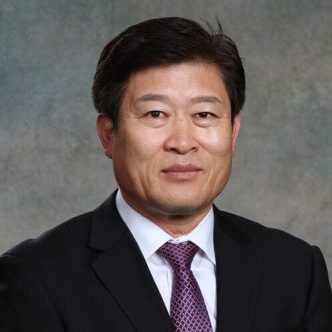A professor of environmental science at California Baptist University, Dr. Bonjun Koo was awarded as the Distinguished Professor in 2020. Dr. Koo graduated with a doctorate degree in Environmental Science with a focus in Water and Soil in University of California, Riverside. After completing his doctorate degree in UCR, he decided to spend his time in South Carolina as a researcher at Savanah River Ecology Lab. In addition to South Carolina, he also conducted multiple research projects in University of Kentucky.
Dr. Koo has taught several classes at CBU for 15 years. These classes include Introduction to Geosciences, Introduction to Environmental Science, General Biology, Fundamentals of Chemistry, and many more. In addition to being a professor and researcher, he also serves as the club advisor for the Environmental Science Club.
In this Q&A, Dr. Koo imparts what it means to be a Distinguished Professor, his goals as a professor, being a club advisor, and how his faith plays a central role in his field.
1. How did you end up at CBU?
After I graduated UCR with a Ph.D. degree in Environmental Science, I spent three years at Savannah River Ecology Lab in Aiken, SC as a postdoctoral researcher. One of my colleagues at SREL got a professor position at University of Kentucky (UK) in 2004 and I went to Kentucky with him to conduct 2-3 research projects. I had three job interviews at CBU, Chapman University, and UK in 2005 and decided to come to CBU. There were various reasons why I chose CBU. The main reason why I chose to teach at CBU was CBU’s Christian environment. I decided to commit myself to serve the CBU community for the Great Commission. It is also a family rooted college since my two younger sisters are alumni. Lastly, I have been a member of Riverside Korean Baptist Church since 1993.
2. How would you describe yourself as a professor? And how would you describe your teaching style?
I am an Environmental Biogeochemist and an Environmental Science Advisor at CBU. I help direct CBU’s Environmental Science program and its research activities on the environmental biogeochemistry of trace elements, carbon sequestration, and bioremediation. I help teach and inspire students to be good Christian stewards of the land with which God has put in our trust throughout many extracurricular activities such as Ecotour, Study Abroad, Arbor Activities, Beach Clean-up, and Safari Park field trip.
3. What does it mean to be named Distinguished Professor?
It is an honor and privilege that the CBU community and colleagues value my achievements in teaching, research, and service. My years of dedication, work, and credentials have earned me a place among the most influential individuals in CBU. It would not have happened without their prayers, support, friendship, and mentorship. I know this award is to encourage me to be more dedicated and work harder in the future.
3. What is your goal as club advisor to Environmental Science Club?
As club advisor, I would like to connect students who share interests in the natural sciences, outdoor activities, and sustainable biodiversity. The club is committed to connecting students and the community with the common goal of enjoying and caring for God’s Creation through responsible stewardship. My goals are to create memories for people to delight in God by enjoying His creation, unify like-minded individuals that care about the environment; and educate students about the environment sciences through club activities.
4. How do you incorporate faith into teaching students about the environment?
Many Christians think of themselves as stewards of God’s world. In fact, the Scriptures clearly emphasize certain principles concerning the responsibility of Christians as stewards of the environment. We, stewards, are not the owners, but rather we act on behalf of God above to maintain and assure the fruitfulness of God’s creation. There was once a time when the earth, the creatures, and the natural resources were seen by the Creator as being good (Genesis 1:31 and 2:1-2). Today, we live on the same planet, but it seems that all is not like it once was in the beginning. The evidence is everywhere in our environment such as toxic chemicals, trace elements, acid rain, deforestation, loss of biodiversity, droughts, and water shortages. The health of ecosystems and the health of species are inclusively related. Although these complex issues are rooted in science, the data set being developed by scientists is not yet completed. I would like to see students have better understanding on the conservation and sustainability and to become better Christian Stewards through Ecotours.
5. On your faculty page, under personal philosophy, you have the verse from Galatians 2:20. Why do you choose this verse?
“I have been crucified with Christ; and it is no longer I who live, but Christ lives in me; and the life which I now live in the flesh I live by faith in the Son of God, who loved me and gave Himself up for me.” Since God gave us His only son, Jesus Christ, in order to forgive our sins and to give us eternal life, I believe that we all need to live purpose given by God with new life.
6. What motivates you to teach?
My wish is to impact students as a professor, advisor, and mentor. This is because I want to play my role as a professor, advisor, and mentor to students in need. I believe this is the mission that God has entrusted to me at CBU.
